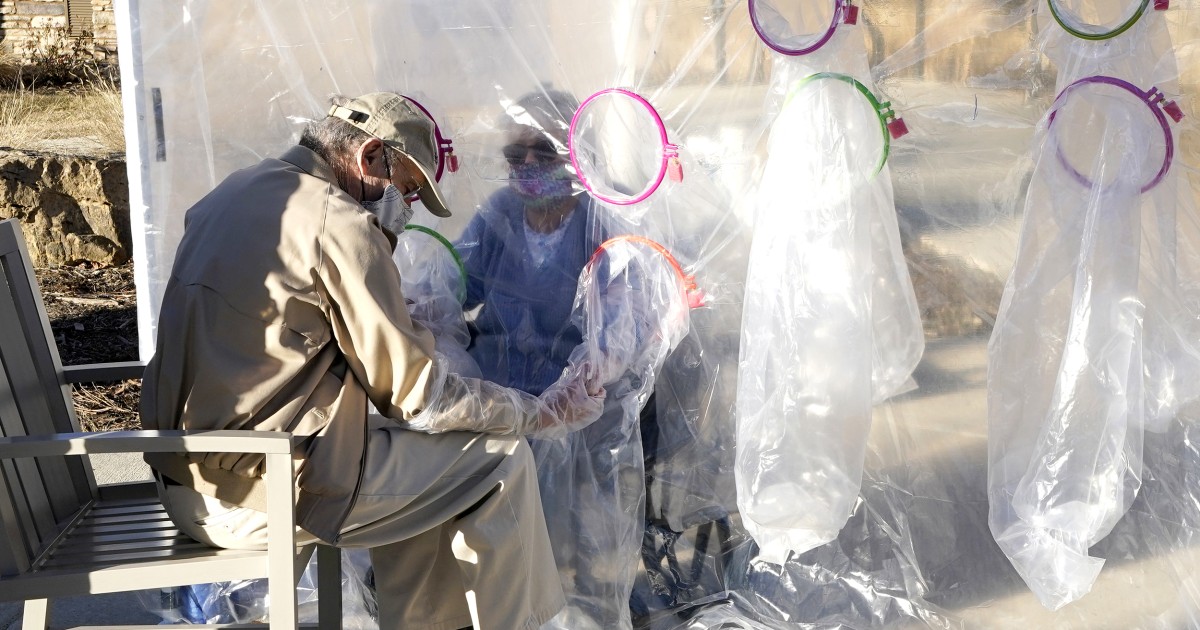Last week, more than 37 million people in the U.S. received their first dose of the Covid-19 vaccine, according to a count by the Centers for Disease Control and Prevention.
Another 13 million people received their second dose, completely completing the Covid-19 vaccination series.
With many already immunized against the virus, the questions are: When can we start thinking about visiting the family or planning a social gathering? Being vaccinated can relieve anxiety about going out, but even people who have received both doses of the Pfizer or Moderna vaccine will still need to follow public health guidelines on wearing a well-fitting mask and social distance.
“Fully vaccinated” means that at least two weeks have passed since a person received the second dose of a two-dose vaccine or one dose of a single-dose vaccine.
NBC News asked vaccine experts what they would feel comfortable doing once they were fully vaccinated.
Is it safe to visit the family?
Dr. Anthony Fauci, one of the country’s leading public health consultants, told Savannah Guthrie on NBC’s “TODAY” program that they are often asked whether it is safe to meet without some of the public health measures, such as masking and social detachment.
“The answer, ultimately, will be yes,” he said during the interview on Thursday.
However, this is if everyone in the group is fully vaccinated. Fauci called for more caution if only one party received the vaccine, as people who have been vaccinated could potentially contain the virus in their nose and pass it on to others.
“That is why we say that, until we have the overwhelming majority of people vaccinated and the level of the virus is very low, if you are vaccinated, it would be prudent to wear a mask,” said Fauci.
Although we do not yet know to what extent the vaccine limits transmission, previous data from Moderna and AstraZeneca suggests modest protection against asymptomatic infection and therefore less ability to spread the virus.
“We don’t know much about whether or not [the vaccines] they are able to prevent infection, which means that you can be infected and inadvertently passed on to others, ”said William Hanage, associate professor of epidemiology at the Harvard School of Public Health TH Chan. “This is something that we are still learning.”
While these vaccines are some of the greatest scientific achievements Hanage has seen in his career, immediately returning to pre-pandemic life is not a good idea, he warned.
Like Fauci, Hanage agreed that if he and his older family members had received the vaccine, he would feel safe embracing them – but only if both parties had completed the series of vaccines.
“One of the best things about the vaccine is that, as it is distributed to older people who are more vulnerable to disease, it will be much easier to have contact with them,” said Hanage.
Dr. Jay Varkey, associate professor of infectious diseases at Emory University in Atlanta, said that although he completed his vaccine series and his parents are close to doing the same, he would only feel safe if he embraced them if the transmission rates of community were low. He added that if the older members of his family were essential workers, he would give even more time.
“If my family members were out and about in the community as essential workers, having to work in factories or in school settings where they are mixed with many other people, many of whom are not vaccinated, I would wait a little longer,” said Varkey.
Is it safe to meet indoors?
Infectious disease specialists also had mixed opinions about whether they would feel safe when meeting at home with friends.
Dr. Peter Chin-Hong, an infectious disease physician at UCSF Health, suggested the formation of “immunity bubbles” with other members who were also vaccinated. Within the bubble, friends and family who are fully vaccinated can meet without masks or social detachment.
For example, Chin-Hong has a group of five to seven co-workers who have completed their vaccine series and is looking forward to welcoming them to dinner. Within these bubbles, it is safe to meet without masks and social distance.
“We wore masks before entering my home or dining space, but once there, I think I would feel comfortable with everyone taking off their masks, sitting around the table, watching a football game or listening to music,” said Chin- Hong NBC News on Thursday during a “Doc to Doc” interview on Facebook Live with senior medical correspondent Dr. John Torres. “These are things that I postponed for more than a year and I can’t wait to do that.”
Hanage called for a little more caution by temporarily meeting indoors without masks, until the virus is more under control in the community.
“We need to keep an eye on this virus. It is very sneaky, so be careful,” said Hanage. “If I were in this situation, I would keep my mask on for now, but I would be looking forward to taking it off.”
Although experts have differing views on what is safe after vaccination, they all agreed on one thing: do not lose your mask when you are in public settings.
“Other people do not know that you have been vaccinated, so by wearing a mask, you show that, vaccinated or not, you are still taking care of them,” said Hanage.
